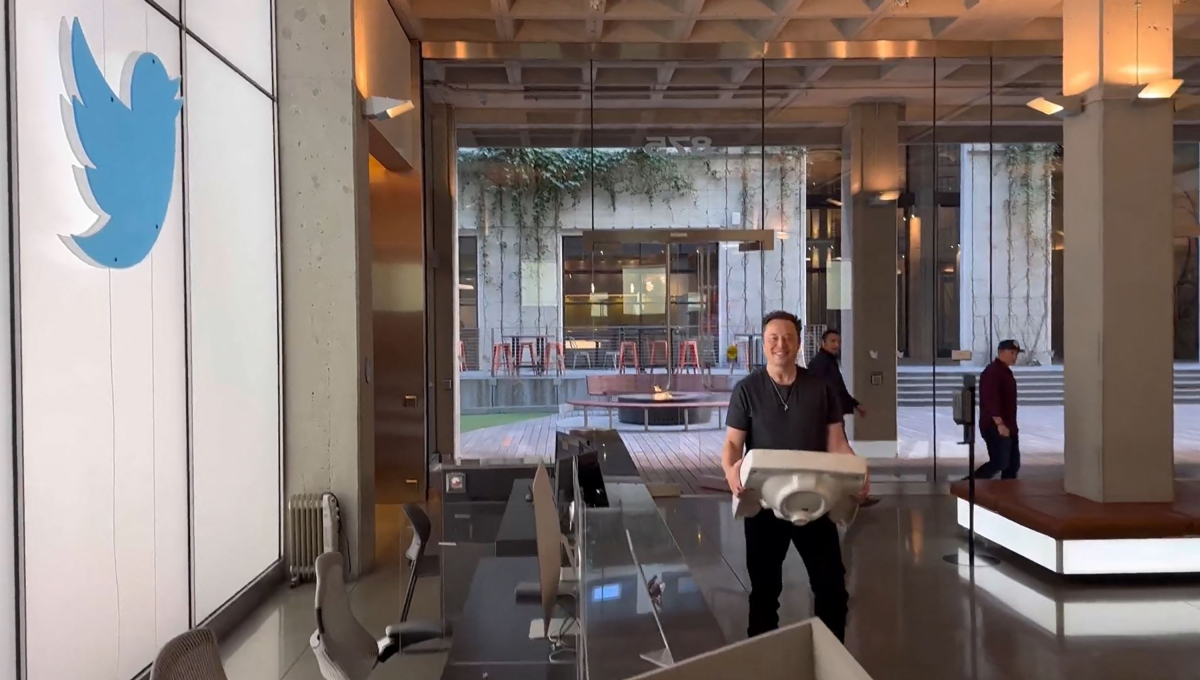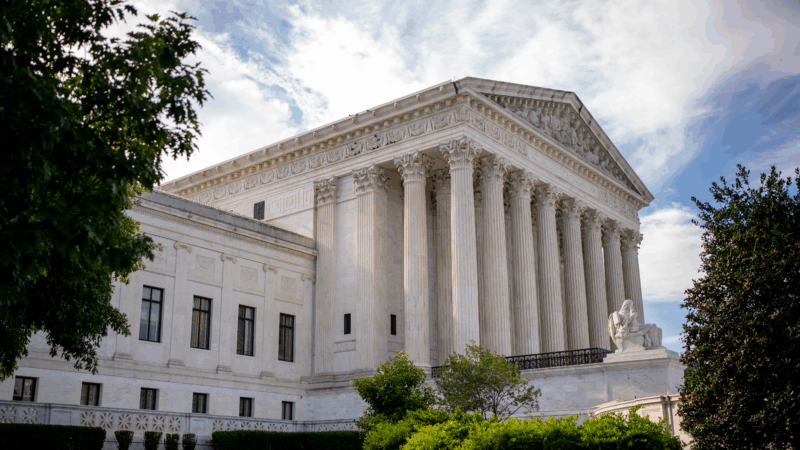Why is Elon Musk so obsessed with ‘ghost employees’?
Shortly after Elon Musk’s purchase of Twitter in 2022, he sent executives on a mission: Conduct a payroll audit.
Musk wanted to verify that all of the social media platform’s employees were “real humans,” a request that perplexed executives at the company. Nonetheless, managers were tasked with confirming that some of their direct reports were indeed alive.
“As if there’s just people collecting paychecks and not doing anything, as if they don’t have supervisors,” said Jay Holler, a former supervisor at Twitter who led an engineering team when Musk took over. “The whole idea was just fundamentally absurd and ignorant of how things actually work.”
Now, with Musk leading the charge on a White House effort to radically reduce the size of the federal workforce, the billionaire’s preoccupation with phantom workers has returned.
In recent weeks, millions of federal employees have been sent emails from a generic government account demanding they list their weekly accomplishments in five bullet points — messages that have prompted confusion and mixed advice across dozens of federal agencies.
But Musk has made it clear: the emails are aimed at validating existing, breathing, employees, a point he emphasized at a Trump administration Cabinet meeting last month.
“They’re literally fictional individuals, or someone is collecting a paycheck on a fictional individual,” Musk said. “So what we’re literally trying to figure out is: Are these people real? Are they alive?”
It was a deja vu moment for former Twitter engineer Yao You, who worked under Musk. To her, the campaign to catch ghost employees lurking on the payroll is really about something else.
“Part of that is making his presence felt very acutely, ”I’m the boss. I’m now overseeing your work, you better make me happy.’ So just putting it on peoples’ mind,” You said. She noted that Musk showed little tolerance for dissenters at Twitter after his purchase of the company. You sees the emails to government employees as a loyalty test.
“It’s not so much about commitment to the company,” she said. “In this case, I guess, commitment to the federal government. It’s about a personal commitment to Elon Musk.”
It’s something You got used to following Musk’s 2022 hostile acquisition of Twitter for $44 billion, a purchase the tech mogul turned into a splashy photo op by walking into the company’s San Francisco headquarters carrying a white porcelain sink. He posted a video of the moment on Twitter with the caption, “Entering Twitter HQ – let that sink in!”

And after that sunk in, Musk kicked off the hunt for non-existent employees just before workers were set to receive a bonus, and Musk would not pay it out until the “ghost employee” theory was investigated, The New York Times reported at the time. Musk eventually renamed the platform X and turned it into a pro-Trump megaphone.
Musk and the White House did not return requests seeking any evidence that the federal government has non-existent people on its payroll.
The possibility of dead people receiving Social Security checks has also animated Musk. He’s said “tens of millions” of dead people are getting the federal support — which is not true.
‘Be ready with 50 pages of code’
Some ex-Twitter employees, such as Holler, think the five-bullet-point emails are a performative stunt.
Holler remembers one moment from some of his final days at the company when a message arrived from one of Musk’s assistants.
“You’re scheduled to meet with Elon at 10:30 this morning. Be ready with 50 pages of code,” said Holler, recalling a message he received on Slack, the workplace messaging app.
To check whether Twitter engineers were real, or productive, managers like Holler were told to print out the software code they had recently written, also known as “code commits” in engineering parlance.
“That was an interesting nerd snipe,” Holler said. “Because we don’t think about code in pages. You don’t print code out. It’s fundamentally run by computers. You edit it on a computer.”
Ian Brown, a former Twitter engineer manager who left before Musk’s acquisition, said this idea would be comical if it were not so offensive.
“The culture was absolutely focused on high-performing, talent-dense teams. There was no one phoning it in,” Brown said. “The wild sort of paranoia of woke zombies not doing stuff is just complete fantasy.”
In the end, Musk scrapped the idea and never evaluated engineers’ printed-out software code.
But before he backed away from the plan, the company was, like the whole federal workforce right now, confused, scared and at the unpredictable whim of Elon Musk.
“Nobody is going to thrive in an environment like this,” You, the former Twitter engineer, said of working under Musk. “But if the goal is to survive without losing your sanity, supporting each other, just talking through it, and knowing you’re not suffering alone, can help,” she said. “To know you’re not suffering silently.”
Transcript:
MICHEL MARTIN, HOST:
Millions of federal workers have been receiving emails from a generic government account demanding that they list their weekly accomplishments in five bullet points. The emails tap into a preoccupation of Elon Musk – the idea that dead people or nonexistent people are employed by the federal government. NPR’s Bobby Allyn tells us it’s not his first chase for phantom employees.
BOBBY ALLYN, BYLINE: Shortly after Elon Musk purchased Twitter in 2022, he sent executives on a mission – conduct a payroll audit. Musk wanted to ensure that all of Twitter’s employees were real people. He even circulated a list of so-called unaccounted-for Twitter workers.
JAY HOLLER: There’s just people collecting paychecks and not doing anything – right? – and, like, as if they don’t have supervisors.
ALLYN: That’s Jay Holler. He was an engineering supervisor at Twitter when Musk took over. He remembers Musk instructing leadership to dig into the company’s payroll and root out fake people, dead people or people getting paid by mistake.
HOLLER: The whole idea is just fundamentally absurd and ignorant of how things actually work.
ALLYN: To former Twitter employees like Holler, Musk’s remarks last month to President Trump’s Cabinet sounded familiar. Musk described his Department of Government Efficiency effort and promoted his so-called pulse-check review emails to federal workers. Here’s Musk during the Cabinet meeting.
(SOUNDBITE OF ARCHIVED RECORDING)
ELON MUSK: We think there are a number of people on the government payroll who are dead, which is probably why they can’t respond, and some people who are not real people. Like, there are literally fictional individuals that are collecting paychecks. Well, somebody’s collecting paychecks on a fictional individual. So we’re just literally trying to figure out – are these people real, are they alive, and can they write an email?
ALLYN: Former Twitter engineer Yao Yue wasn’t so sure about that being the driving force behind the emails. She, too, was working at Twitter when Musk acquired the company. She thinks there’s another reason behind Musk’s push for the five-bullet-point messages.
YAO YUE: Part of that is making his presence felt very acutely. I’m the boss. I’m now overseeing your work. You better make me happy, right? So just putting it on people’s mind.
ALLYN: Yue says Musk showed little tolerance for dissenters at Twitter after his purchase, and she thinks Musk’s emails to federal workers are something of a loyalty test.
YUE: It’s not so much about commitment to the company – in this case, I guess, commitment to the federal government. It’s about a personal commitment to Elon Musk.
ALLYN: Musk and the White House didn’t return requests seeking evidence that the federal government has nonexistent people on its payroll. The possibility of dead people receiving Social Security checks has also preoccupied Musk. He said tens of millions of dead people are getting federal support, which isn’t true. And while it’s hard to know for sure why Musk has made the possibility of ghost workers something of a hobbyhorse, some ex-Twitter employees like Holler say Musk enjoys big performative acts. Holler remembers one moment from some of his final days at the company. He received a message from one of Musk’s assistants.
HOLLER: You’re scheduled to meet with Elon at 10:30 this morning. Be ready with 50 pages of code.
ALLYN: To check whether Twitter engineers were real or productive, bosses like Holler were told to print out the software code they had recently written.
HOLLER: Well, that’s, like, an interesting nerd snipe ’cause, like, we don’t think about code in pages. You don’t print code out. Like, it’s fundamentally run by computers. You edit it on a computer.
ALLYN: In the end, Musk scrapped the idea and never evaluated engineers’ printed-out software code. But before he backed away from the plan, the company was – like the whole federal workforce right now – confused, scared and at the unpredictable whim of Elon Musk.
Bobby Allyn, NPR News.
(SOUNDBITE OF BEATMUND NOISE, MARIUSSAX AND NO MIC’S “FEELING ALIVE IN THE DEAD OF NIGHT”)
Republicans say Clintons risk contempt of Congress for not testifying on Epstein
House Republicans are seeking testimony as part of their investigation into convicted sex offender Jeffrey Epstein. The Clintons say they've already provided in writing what little they know.
FTC accuses AI search engine of ‘rampant consumer deception’
Federal officials say a company that operates hundreds of landing pages for AI answers is running an operation that has duped thousands of users, who were unable to stop costly monthly charges.
‘My role was making movies that mattered,’ says Jodie Foster, as ‘Taxi Driver’ turns 50
Foster was just 12 years old when she starred in the 1976 film. "What luck to have been part of that, our golden age of cinema in the '70s," she says. Her latest film is Vie Privée (A Private Life).
Supreme Court appears likely to uphold state bans on transgender athletes
To date, 27 states have enacted laws barring transgender participation in sports.
Keep an eye out for these new books from big names in January
The new year begins with a host of promising titles from George Saunders, Julian Barnes, Jennette McCurdy, Karl Ove Knausgaard and more. Here's a look ahead at what's publishing this month.
Want to play a Tiny Desk concert? The 2026 Contest is now open for entries
The 2026 Tiny Desk Contest, our annual search for the next great undiscovered artist, is now officially open for entries.






